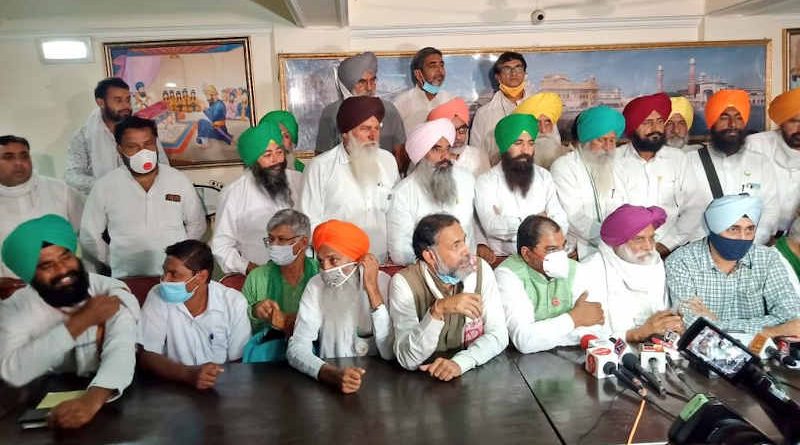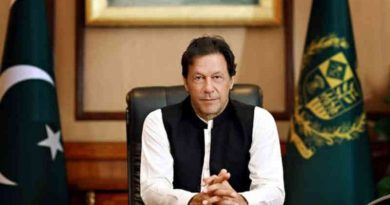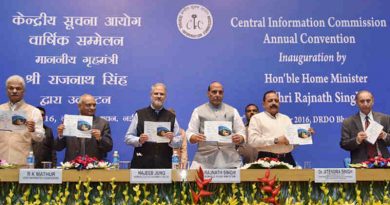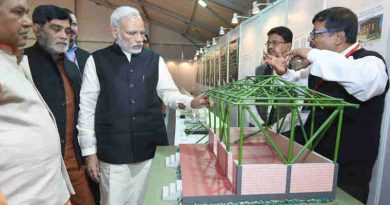Farmers Must Not Reduce Their Agitation to Just MSP and Farm Laws

As hundreds of thousands of Punjab farmers have decided to continue their protest in Delhi, they must define their demands without any ambiguity.
By Rakesh Raman
While Indian farmers are up in arms against the new farm laws imposed by the government, PM Narendra Modi maintains that these laws are part of the agricultural reform process.
In a speech today (November 29), Modi said that new dimensions are being added to agriculture and its related activities in India. “The agricultural reforms in the past few days have also now opened new doors of possibilities for our farmers,” Modi claimed.
He added in his speech that the Parliament of India gave a legal form to the agricultural reforms after a lot of deliberation. “These reforms have not only served to unshackle our farmers but also given them new rights and opportunities. In just a short span of time, these new rights have begun to ameliorate the woes of our farmers,” Modi said while admiring his decision.
However, farmers are not convinced. Hundreds of thousands of farmers are protesting against the contentious farm laws. After holding protest meetings in their cities, the farmers from various states – mainly from Punjab – came to New Delhi on Friday (November 27) to hold a joint demonstration.
After blocking their entry with barbed wires, teargas, and water cannons, the government through Delhi Police on November 27 had reluctantly allowed farmers to protest near the outskirts of Delhi in the Burari area. In fact, the government succumbed to the intensity of the protests.
But farmers have decided not to assemble in the fenced Burari ground and instead decided to camp at Delhi borders. They fear it can be a government’s ploy to push all the visiting farmers at one location and detain them there.
Moreover, it is believed that their peaceful demonstrations at an isolated protest site will not have any impact on the government which will simply ignore them. Farmers give the example of anti-corruption leader Anna Hazare who – along with thousands of protesters – kept protesting in Delhi a few years ago, but the government ignored him.
As an alternative to their Burari demonstrations, farmers have decided to block all the entry roads to Delhi to cut off the national capital from the rest of the country. They feel with this kind of move they can make a forceful impact on the government.
Farmers also say that they will continue their agitation even for months in Delhi until the Modi government accepts their demands. They have converted their vehicles to mobile homes which have sufficient raw food items that they cook on the roadside.
DEMANDS OF FARMERS
But what are their demands? Some farmers are focusing their demands only on the minimum support price (MSP) – a price guaranteed by the government to buy some of the crops. They expect the Modi government to include MSP clause in the law so that their crops are not bought below the MSP.
Most farmers do not understand that their perpetual woes won’t end even with the MSP law enforcement. Some of the farmers demand the repeal of all the 3 farm laws introduced by the Modi government in September.
The government has categorically refused to withdraw the laws. But even if it cancels or amends the laws under farmers’ protest pressure, Modi can reintroduce the same or similar laws once the protest intensity subsides.
Then it will be extremely difficult for the farmers to build the momentum again while there is a possibility that many farm leaders will be illegally detained and jailed by the Modi government.
Farmers must know that the Modi government has used stringent anti-terror laws such as the Unlawful Activities Prevention Act (UAPA) on peaceful protesters who opposed the Citizenship Amendment Act (CAA) earlier this year (2020).
Delhi Police – which operates under the Modi government – claims that the anti-CAA protesters were talking about a “chakka jam” (road blockade) in Delhi, which the government says is a terrorist activity.
Obviously, when farmers are actually blocking the roads to Delhi, the Modi government’s Delhi Police can detain these innocent farmers under UAPA or other such draconian laws which are being misused to oppress the peaceful citizens in the country.
With the evil aim to discredit the protesting farmers, Modi, his mischievous party colleagues, and dishonest media channels are already calling them separatists, terrorists, anti-nationals, and agents of opposition parties including Congress which runs the government in Punjab.
At this stage, however, when farmers’ protests are intensifying, the Modi government is trying to entice them with offers of talks just to diffuse the tension. But once farmers decide to end their agitation, they will be individually targeted by the authorities to punish them with harsh laws.
A close associate of PM Modi and India’s Home Minister Amit Shah has invited farmers to hold talks with the promise that their grievances will be addressed. But he has not said that the farm laws will be revoked, which is the main demand of farmers.
If farmers accept the government’s offer for discussion without the promise of revoking the farm laws, they will lose the momentum in their struggle. The discussion will also go futile, as Modi has repeatedly maintained that his laws are good for farmers and he will not withdraw them.
Therefore, instead of just asking for the withdrawal of farm laws or the creation of MSP legislation, farmers should extend the scope of their demands. They should struggle for complete autonomy without any government interference in their farming and other socio-economic decisions.
Although the people of Kashmir have failed to get this kind of autonomy as their agitation has been violently crushed by the Modi government, people of Punjab with their proven grit and determination can achieve this goal. Then the same autonomous model can be emulated by other Indian states.
As hundreds of thousands of Punjab farmers have decided to continue their protest in Delhi, they must define their demands without any ambiguity. It will be their defeat if they just focused on the recent farm laws and the MSP.
By Rakesh Raman, who is a national award-winning journalist and social activist. He is the founder of a humanitarian organization RMN Foundation which is working in diverse areas to help the disadvantaged and distressed people in the society.





